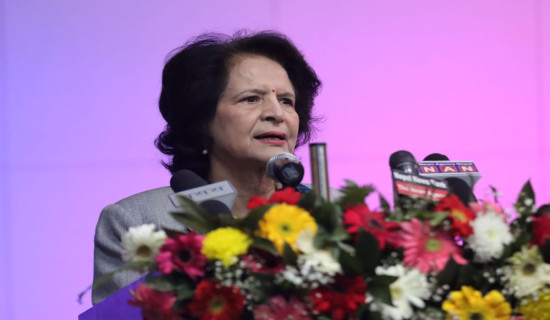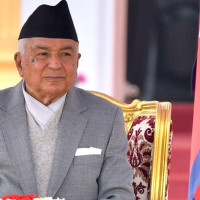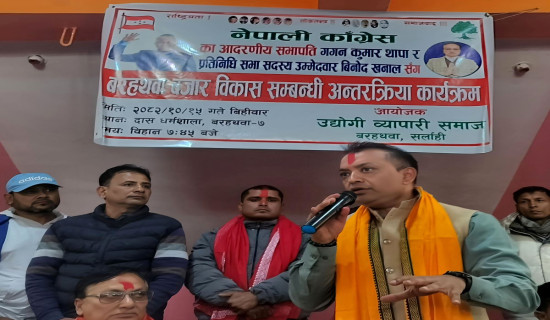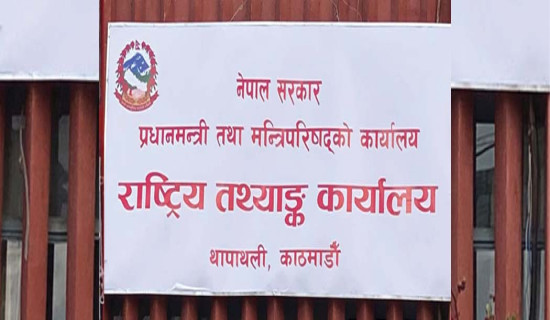- Friday, 30 January 2026
NRB saved economy from adversary
Kathmandu, Apr. 5: Governor of Nepal Rastra Bank (NRB) Maha Prasad Adhikari has said that the country's economy did not face major problems despite the challenges created by the COVID-19 pandemic and tension between Ukraine and Russia due to the appropriate policies adopted by the central bank.
Reviewing his term on Friday, Governor Adhikari said that Nepal’s national economy was affected less than other countries’ due to appropriate decisions taken at the right time.
“To revive the economy affected by the COVID-19 pandemic, the central bank had adopted a flexible monetary policy and provided various regulatory exemptions/facilities. In addition, the bank had also provided facilities such as refinancing to facilitate credit," Adhikari said.
"This helped prevent further contraction of the COVID-affected economy and revive the economy."
Governor Adhikari said that in the past five years, the country has faced supply disruptions caused by the COVID pandemic as well as Russia- Ukraine tensions. “As a result, economic uncertainty increased and challenges in maintaining economic stability,” he said.
Adhikari, however, claimed that economic stability has been maintained in the country with appropriate monetary policy and timely changes made in regulatory policies.
He said that the financial sector's capital adequacy and liquidity were above regulatory requirements, interest rates remained business-friendly, and inflation, which had spiked after COVID-19, is gradually decreasing and is currently within the monetary policy target set by the bank.
According to Adhikari, the country's external sector economy remains strong.
"To fulfill the responsibilities assigned by law and to make the operations of this bank more effective, significant reform works have been completed during the past five years. By modernising monetary policy, liquidity management has been made more effective. To make liquidity management more systematic and to make the interest rate corridor more effective, arrangements such as permanent deposit facility and stabilisation fund have been made," he added.
He also said that there was a significant increase in the development of electronic payment infrastructure, public access to payment devices, and the use of electronic payment devices.
“The number of electronic payment transactions in the fiscal year 2023/24 has tripled compared to the fiscal year 2020/21,” Adhikari said. “There is now a situation where payments can be made electronically even in cross-border payments.”
He also said that the fourth strategic plan has been formulated and implemented, and arrangements for the second human resources plan, succession plan, and capacity development plan have been formulated for skill development and talent management of employees.
During his five-year term, the financial sector has been further consolidated through mergers and acquisitions, he said, adding that unhealthy competition had been discouraged and that malpractices in the financial sector had been largely reduced.
He said that a policy has been adopted to mobilise the resources and means available to the banking sector in productive sectors.
"Some important provisions, such as the provisions related to the credit-deposit ratio, provisions related to mandatory investment in sectors, including agriculture and energy, new provisions related to single customers, and working capital loan guidance are dedicated to the long-term interests of the financial system," he said.
He said that additional arrangements have been formulated to strengthen the institutional governance of the central bank, manage risks and make the bank's operations effective.
"A business continuity policy and plans have been formulated and implemented," he added.

















